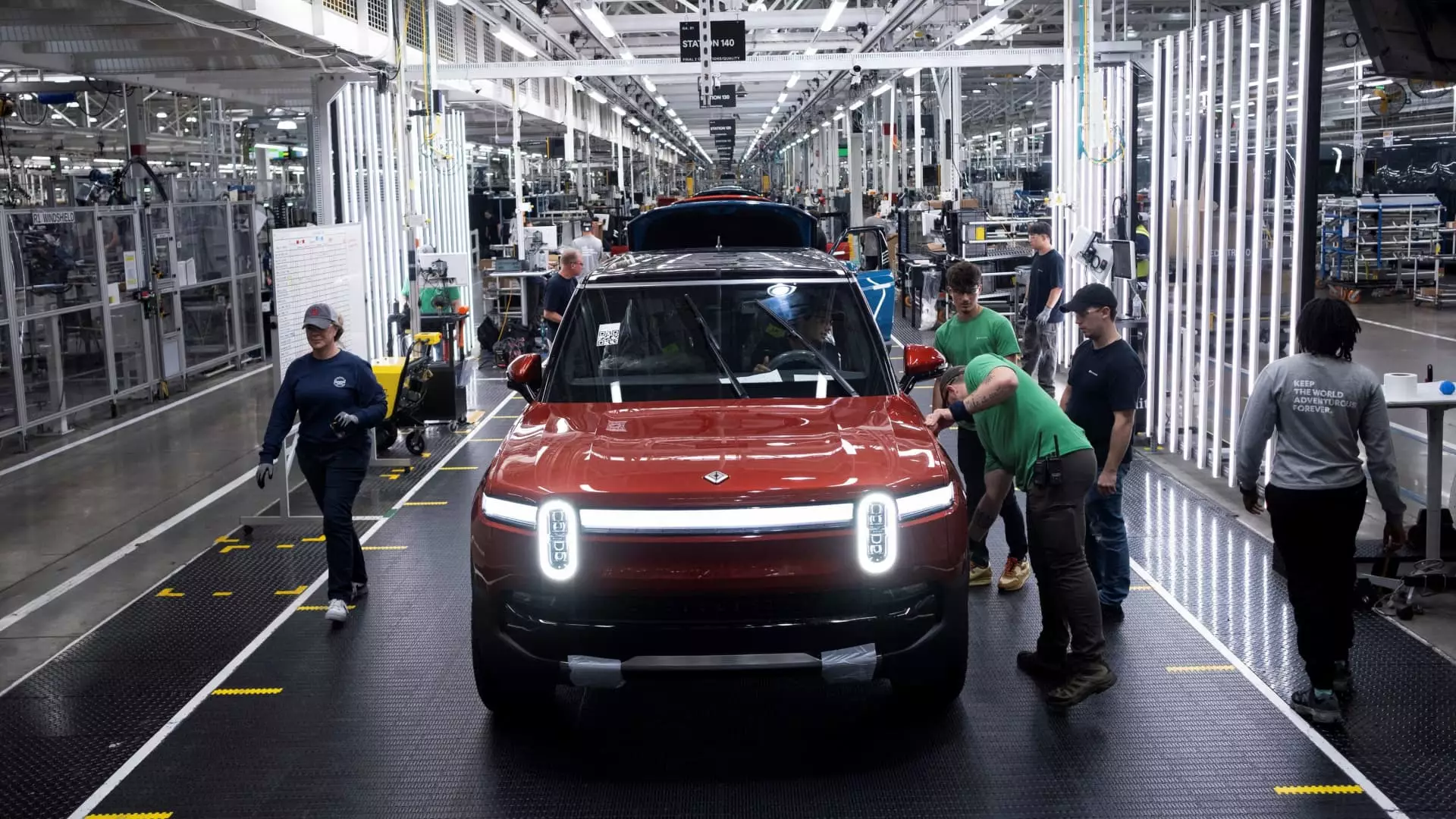Rivian Automotive, the electric vehicle startup that once generated significant excitement in the EV market, experienced a downturn in its stock price, dropping about 4% in early trading on Friday. This decline was precipitated by the company’s announcement that it delivered fewer vehicles in the third quarter than market analysts had anticipated. With electric vehicle demand rapidly evolving, Rivian’s struggle to meet expectations raises serious concerns about its operational capabilities and future production outlook.
The primary cause behind Rivian’s poor performance appears to be a significant reduction in their annual production forecast for 2024. Originally aiming to produce 57,000 units, Rivian has now revised its targets down to between 47,000 and 49,000 units. This cut has been explicitly tied to a supply chain disruption stemming from a shortage of a crucial shared component essential to both its R1 vehicles and commercial vans. Such unexpected hurdles in the supply chain reflect broader issues that many automotive manufacturers face in a post-pandemic world, where sourcing materials consistently has become increasingly challenging.
Rivian’s spokespeople addressed the media, revealing that the supply issue centers around components related to their in-house motors. However, they refrained from divulging specific details about the nature of the component shortages. CEO RJ Scaringe openly acknowledged during a recent Morgan Stanley investor conference the difficulties associated with a multi-tiered supply chain. He noted that recent supplier issues have significantly impacted operations, particularly concerning their in-house motor components. Such admissions indicate that Rivian is facing not only logistical challenges but also deeper vulnerabilities within its supply chain that may jeopardize future production capabilities.
Despite facing these troubling production challenges, Rivian has maintained a cautiously optimistic annual delivery outlook of low single-digit growth compared to 2023. They project to deliver between 50,500 and 52,000 vehicles this year, although this optimism is tempered by the current realities of the market. In the third quarter, Rivian produced 13,157 vehicles at its facility in Normal, Illinois, but only managed to deliver 10,018 of those, falling short of analyst estimates which predicted deliveries of around 13,000.
The broader context of Rivian’s struggles cannot be overlooked—stock performance has suffered greatly, with shares plunging over 50% in 2024. Slower-than-expected EV demand and high cash burn rates have compounded negative sentiment from investors regarding Rivian’s growth strategy and its ability to navigate the competitive landscape dominated by established automakers like Tesla and GM. As Rivian seeks to recover from these setbacks, it must not only resolve its immediate supply chain issues but also adapt to an increasingly crowded EV marketplace to regain investor confidence and meet long-term growth objectives.

